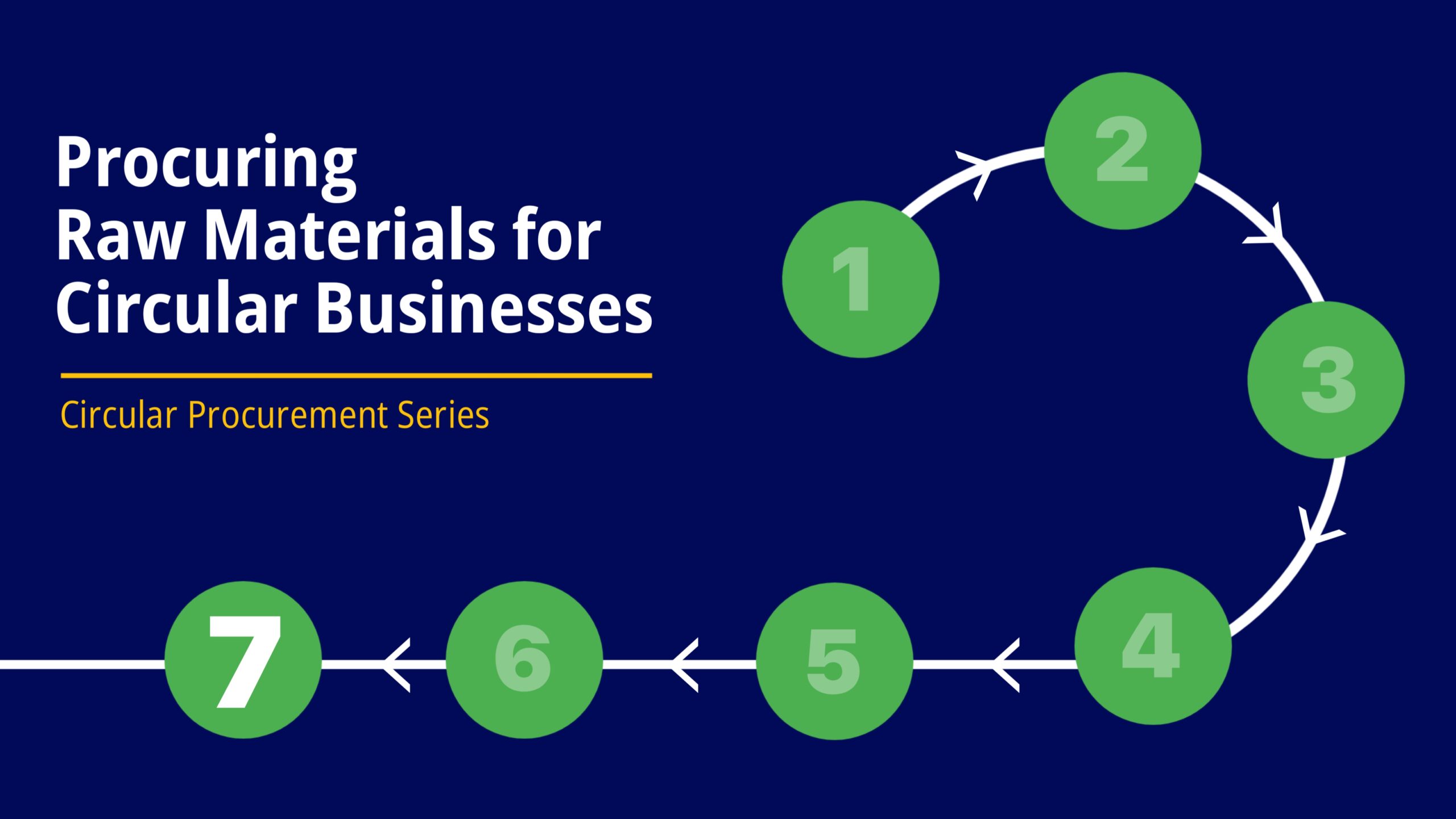Procuring Raw Materials for Circular Businesses
A key aspect of circular procurement is procuring raw materials as inputs for manufacturing…
Raw materials are essential for many types of business operations, yet if unchecked can pose significant challenges for sustainability. According to the World Economic Forum, over 90% of global biodiversity loss and water stress, along with approximately half of global greenhouse gas emissions, stem from the extraction and processing of raw materials. The demand for these resources is projected to double by 2050, intensifying pressure on finite resources.
Initiating production with circular raw materials (i.e. inputs from sustainable, regenerative, or recycled sources) solves a foundational problem for sustainability: reducing the extraction of natural resources and the generation of waste. Utilising materials already in circulation or easily returned to nature, businesses can sidestep the adverse effects of environmentally depleting activities such as mining, drilling and logging.
How can businesses procure raw materials that are suitable for circular business models? What are the challenges and opportunities? Are there cases of companies adopting circular raw material?
Procuring circular raw materials does not come without challenges. Businesses face barriers such as availability, quality, or standards of circular raw materials; higher costs or risks associated with transportation, storage, or processing; limited awareness or acceptance among customers or stakeholders; or regulatory or constraints that favour linear models. To overcome these, businesses need to adopt a holistic and strategic approach to circular procurement. Five steps that any business involved in manufacturing goods can take are:
- Assess Current Material Use: Evaluate the materials used in your production process and how they affect your environmental and social impact. With tools like material flow analysis or life cycle assessment, businesses can measure material inputs and outputs, and identify areas where they can reduce waste or increase efficiency in a way that is economically viable.
- Define Your Circular Material Strategy: Define your goals and objectives for procuring circular raw materials. You can use frameworks such as the circular economy principles or the waste hierarchy to guide your decision making.
- Explore Circular Material Options: Actively research and leverage available resources like online databases or platforms (e.g., The Circular Procurement Guide), industry networks (e.g., Nigerian Circular Economy Working Group), research institutes (e.g. LBS Sustainability Centre) businesses can identify available and feasible circular raw materials, steering toward sustainable practices that drive tangible environmental and economic outcomes.
- Choose Circular Material Suppliers: Identify potential suppliers of circular raw materials based on criteria like quality, price, availability, reliability, and certifications; fostering long-term partnerships and contracts to ensure a steady supply chain and mutual advantages. Companies like Alef, Polysmart and others with industry certification in recycling plastic to pellets could be a viable partner for businesses in need of this circular raw material.
- Evaluate Circular Material Performance: Comprehensively monitor indicators such as material savings, waste reduction, cost-effectiveness, revenue generation, and stakeholder feedback to get quality and quantitative insight on success of circular raw material procurement efforts, enabling continuous improvement and informed decision-making. A good example is Nigeria Breweries that tracks its zero waste efforts and assesses its achievement.
In Nigeria, the manufacturing sector serves as a notable example of employing circular raw materials. Repurposing waste materials, like plastics, in manufacturing procedures holds the potential to drastically decrease dependence on newly sourced resources. Companies such as BASF have been at the forefront of embracing circular raw materials. BASF’s dedication to substituting fossil-based materials with recycled and renewable options, with a target to process 250,000 metric tons annually by 2025, showcases a tangible demonstration of the achievable effects and practicality in shifting towards procuring circular raw materials.
The shift towards circular raw material procurement is not just a theoretical concept but a tangible solution to Nigeria’s sustainability challenges. By leveraging existing resources, embracing innovation, and fostering collaboration, we pave the way for a thriving circular economy that benefits both businesses and the environment.



